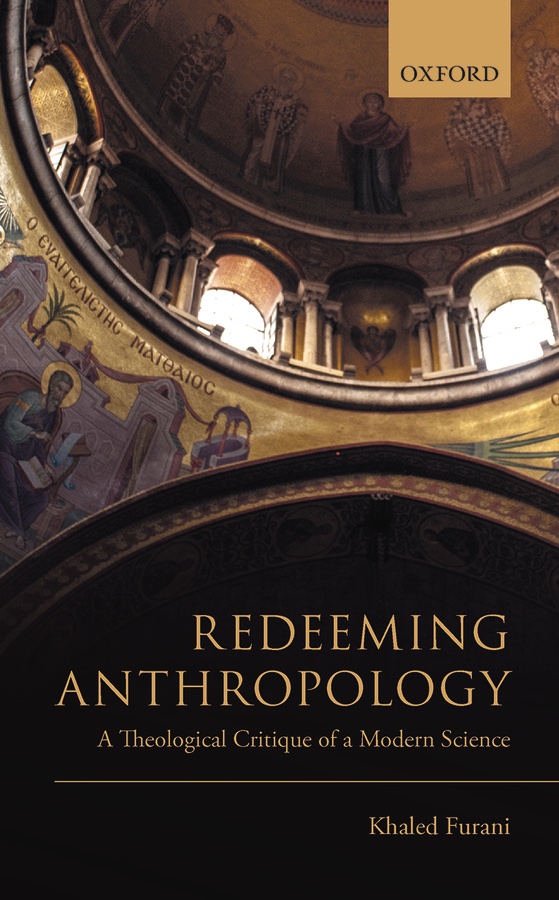 I am grateful to Khan Asfandyar Shairani for raising a series of points about my book, Redeeming Anthropology: A Theological Critique of a Modern Science. Here I will focus on two of them. As for the first, Shairani illustrates why Redeeming Anthropology is not only for anthropologists. After all, anthropology, so my argument goes, is but one instance of the exercise of sovereign secular reason in the modern university. While I seek to articulate a particular critique of a particular discipline inhabiting a state of “Anthropodom,” I contend that any intellectual “beneficiary” of Europe’s reason stands to benefit from interrogating its complex relationship with theology.
I am grateful to Khan Asfandyar Shairani for raising a series of points about my book, Redeeming Anthropology: A Theological Critique of a Modern Science. Here I will focus on two of them. As for the first, Shairani illustrates why Redeeming Anthropology is not only for anthropologists. After all, anthropology, so my argument goes, is but one instance of the exercise of sovereign secular reason in the modern university. While I seek to articulate a particular critique of a particular discipline inhabiting a state of “Anthropodom,” I contend that any intellectual “beneficiary” of Europe’s reason stands to benefit from interrogating its complex relationship with theology.
Relating Redeeming to his home discipline of history, Shairani asks about the “idols” that may obstruct historians’ access to understanding their own motivations. He formulates a particularly sensitive question, indeed an aporia: “I find it difficult to imagine that the choice of historical queries, the topics of our interest are somehow simultaneously ‘interests’ and yet paradoxically disinterested.” Shairani asks that historians probe who they are and who can they become by digging into their reasons for digging up the past.
As a Muslim historian and student of peace studies, Shairani also seems to contend with this very question in investigating the “cosmologies that oriented thinkers in the pre-modern past” of India. Here Shairani admits that he must address “the theological within the limits of historical reason,” which he faces when confronting questions such as: What can historians do with their historical subjects’ dreams and visions? Invoking Abū Ḥayyān al-Tawḥīdī’s concept of falatāt (the unexpected), Ebrahim Moosa here offers an answer: “The unexpected is perhaps the most fertile ground of history.” In thinking about “the limits” set to and by historical “reason,” I also wish to recommend as a resource Amira Mittermaier’s excellent ethnography exploring the place of “un-real” in the making of the ethical and political “real,” Dreams that Matter: Egyptian Landscapes of the Imagination. Yet in doing so, I worry that historians may fear digging up “imagination” (and certainly the imagination of those vanquished by victorious History) or “divine wonder” as falling outside their rightful purview. Perhaps my concern could be mollified should, for example, art historians more regularly teach in “proper” history departments.
Shairani concludes his comments with a call for “epistemic humility,” which he sees my book as inviting. Perhaps his sense follows from my aim to find a language other than that of sovereign power (principally of the state and its secular reason). Yet, I cannot help but wonder in what ways such a venture as Shairani proposes (historians finding legitimate reasons to study dreams) requires not only humility, but boldness as well. Such boldness would have us bring those forsaken by sanctioned History (e.g., poets, prophets, and our grandmothers) back into the reality of existence in whose making historical time participates. Might academic historians who include dreams (“signs”?) in their materials of study (and thereby heed an “extra-historical” sense of time) appall their secular profession with such heretical pursuits?
This question brings me to reflect on the next set of comments by Joshua S. Lupo for whose sentient reading of Redeeming I am also grateful. Lupo begins where in some sense Shairani concludes. Lupo rightly notices a risk I took in inviting theology to the proverbial table, a risk compounded by an absence of specification as to the type of theology I welcome. In response to this concern, I wish to say that I am neither capable nor interested in defining what type of theology may or may not join the conversation. This is because “theology” in my account serves to signal a space in which: (1) something that we might call “theistic reason” can find a home; and (2) secular reason claiming itself sovereign can face itself. I see this space, I think Lupo would agree, offering freedom and risk at once. Freedom comes by “opening up” to the voice of the Other of a given authoritative discourse, entering a long-prohibited conversation, while taking the risk (among surely countless others) of not being sure what might also find its way in.
Lupo leaves me with two good questions that require further thought. The first asks about the “added value,” analytically speaking, of the concept of “idolatry,” as I use it, over the “fallibilism” concept he associates with the American school of philosophical pragmatism. While I must learn more about “fallibilism” to properly consider whether “idolatry” offers any analytical advantage, I hope that I make it clear that in evoking idolatry, I also aim to recognize an error that exceeds mere “cognitive fallacy” or a “mistaken state of mind.” Rather, recognizing and rectifying this error could induce a form of life whose allegiances, trust, alertness, and fear would be continually shaped by this recognition.
The second question asks about the type of criteria that, consciously or not, I apply when drawing upon this or that concept from theology. Quite honestly, I have no ready answer. As far as I can recognize, I did not work with any select set of concepts to the exclusion of others from theology, with one exception. A concept contending with “revelation” as a potential “sovereignty-slayer” (epistemically speaking), that I consciously excised from my argument is “tradition.” To make a banal point, my reason was because there is nothing decidedly nor inherently theological about tradition, even if such ascriptions might be part of its vast disavowal by social sciences and humanities.
Lupo concludes his commentary hoping that reason and revelation can be “co-inhabitants of a common world” wherein theology and anthropology could humble each other. I wish to express two responses to this hope. First, in Redeeming I was barely able to muster a word or two about how anthropology might be humbled by theology; I can hardly imagine how the modern discipline of anthropology might humble theology (which is not to say that the discipline of theology does not need humbling). By extension, if revelation is arguably the humbler of reason, when might we reasonably expect reason to be capable of humbling revelation? When might a rock humble the rain?

